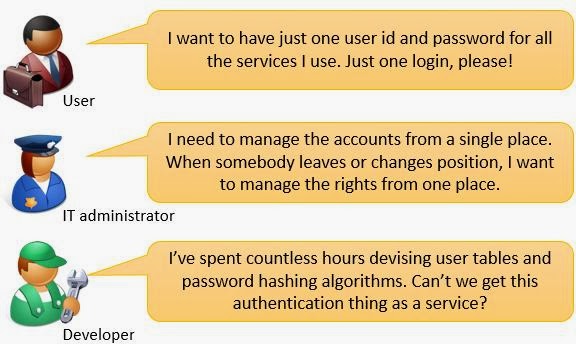How to resolve issues with Active
Directory
Mostly cases, difficulties with Active Directory are grounded by
wrong configuration of Mac OSX Clients PC or Windows Active Directory
Servers. So, firstly, please test the given below Apple articles and
confirm that both clients machine and account servers are properly
configured:
training.apple.com/pdf/wp_integrating_active_directory.pdf
However, sometimes set up the correct options isn't adequate to
make system work. This concept describe one of the known problem and
methods to resolve such issues.
URGENT NOTES: BECAUSE Of multiple and complexity problem
with Active Directory configuration, the development team would
largely acknowledge it if we would please report any bug concerning
Open Directory and Active Directory.
=====================
DESCRIPTION OF PROBLEM:
User recordS FOR Active Directory can include non empty property
of "Home Folder". Such property is placed in the profile of
user (Windows Active Directory Server):
"Control Panel → Administrative Tools → Active Directory
Users and Computers → Users → [USER RECORD] → Properties →
Profile"
If "Home Folder" property includes the wrong or
unaccessible path of UNC, it can generate the problems during login
to Mac OSX computers that is installed to utilize this Active
Directory Server as accounts servers.
=====================
POSSIBLE REASONS:
- UNC way that is explained in the property of "Home Folder" has the invalid format. The valid format should look like: '\\host\share\home'
- Path of UNC that is explained in the properly of "Home Folder" doesn't exists or doesn't assist condemned protocol. (AFP / SMB)
- The mark remote share nominative by the property of "Home Folder" has an invalid permission.
- "Active Directory" is installed improperly on the Mac OSX Clients Computers.
- "Home Folder" is installed wrongly on the Windows
Active Directory Servers or Mac OSX File Servers.
 |
| How to resolve issues with Active Directory |
=====================
WORK AROUNDS:
1.) If we don't like to utilize the UNC path from the Active
Directory to derive network home position:
- Mac OSX:
- Open 'System Preferences →Users & Groups → Login
Options →Network Account Server →Edit/Join →Open Directory
Utility'.
- Choose 'Active Directory' and click 'Edit' icon.
- Press 'Show Advanced Options'.
- Test the 'Force local home directory on startup disk'
options.
- Set the 'Network protocol to be used' options to 'SMB'.
- Unchecked the 'Use UNC path from Active Directory to derive
network home location' options.
- Open 'System Preferences →Users & Groups → Login
Options →Network Account Server →Edit/Join →Open Directory
Utility'.
- Server of Windows Active Directory:
- Open the 'Control Panel → Administrative Tools → Active
Directory Users and Computers → Users → [USER RECORD] →
Properties → Profile'
- Now Clear the property of "Home Folder".
- Press "Ok" to close the properties dialouge box.
- Open the 'Control Panel → Administrative Tools → Active
Directory Users and Computers → Users → [USER RECORD] →
Properties → Profile'
2.) If we like to utilize the SMB share as remote home folders and
like to derive its position from Active Directory, please follow the
steps explained as following.
- Mac OSX Clients Computers:
- Open the "System Preferences→Users & Groups→Login
Options→Network Account Server→Edit / Join→Open Directory
Utility".
- Choose the 'Active Directory' & push the icon 'Edit'.
- Click on the "ShowAdvanced Option".
- Unchecked the 'Force local home directory on start up disk'
options.
- Setting the 'Network protocol to be used' to SMB.
- Test 'Use UNC path from Active Directory to derive network
home location' options.
- Open the "System Preferences→Users & Groups→Login
Options→Network Account Server→Edit / Join→Open Directory
Utility".
- Server of Windows Active Directory:
- Open "Control Panel → Administrative Tools →
ActiveDirectory Users and Computers → Users → [USER RECORD] →
Properties → Profile"
- Setting up the properly of "Home Folder" to valid
and accessible path of UNC, like the: '\\host\share\home'
- Press "Ok" to close dialog of properties.
- Open "Control Panel → Administrative Tools →
ActiveDirectory Users and Computers → Users → [USER RECORD] →
Properties → Profile"
3.) If we like to utilize the AFP share as remote home folders and
like to derives its locations from the Active Directories, please
process the steps provided down.
- Mac OSX File Server:
- Installed our AFP shares as nominative in:
www.test.com/support/faq/AFP-Shares
- Installed our AFP shares as nominative in:
www.test.com/support/faq/AFP-Shares
- Mac OSX Clients Computers:
- Open 'System Preferences→Users & Groups→Login
Options→Network Account Server→Edit / Join→Open Directory
Utility' .
- Choose the "Active Directory" and push the icon
'Edit'.
- Now Click on the "Show Advanced Options".
- Unchecked 'Force local home directory on start-up disk'
options.
- Set 'Network protocol to be used' to AFP.
- Test 'Use UNC path from Active Directory to derive network
home location' options.
- Open 'System Preferences→Users & Groups→Login
Options→Network Account Server→Edit / Join→Open Directory
Utility' .
- Server for Windows Active Directory:
- Openn the 'Control Panel → Administrative Tools → Active
Directory Users and Computers → Users → [USER RECORD] →
Properties → Profile"
- Setup the "Home Folder" property to valid and
accessible path of UNC, like the:
"\\host\share_point\share_folder\home"
- Openn the 'Control Panel → Administrative Tools → Active
Directory Users and Computers → Users → [USER RECORD] →
Properties → Profile"
IMPORTANT NOTE: It is powerfully recommended to
reboot the Mac OSX Clients Computers after implementing any of the
work-around provided on top.









No comments:
Post a Comment